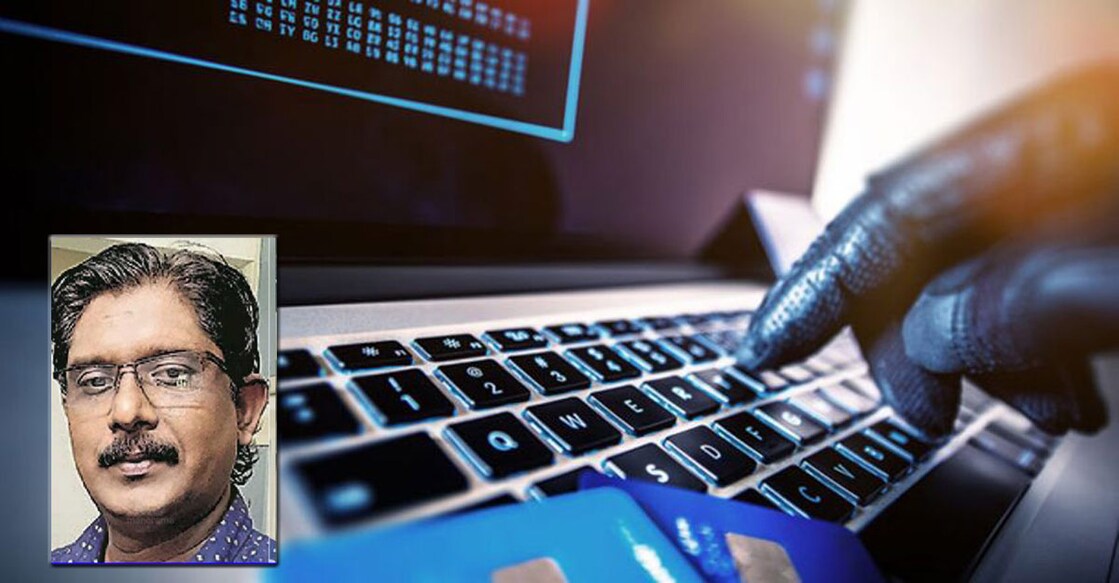How Bijulal deftly used software loopholes to transfer Rs 2 crore from Kerala's Treasury

Mail This Article
The swindling of Rs 2 crore by suspended senior accountant MR Bijulal from the Vanchiyoor treasury exposes the loopholes in the banking software used.
The accused managed to transfer the amount from the Thiruvananthapuram District Collector’s account to his personal account.
The core treasury savings bank (CTSB) and the Core Treasury Information System (CTIS) software systems could have chinks that scamsters could exploit, sources say.
The treasuries in the state moved to software-based operations in 2017. At this stage, thousands of dummy savings bank (SB) accounts were created. The now-dormant or closed accounts were listed as ‘dummy’ in the software.
Sources said these dummy accounts were an ‘easy way’ for ingenious ones to siphon off money.
Another ‘easy’ option for scamsters is the ‘correction’ option in the electronic pay order cheque in the core TSB account. The ‘correction link’ is meant to rectify any errors when beneficiary accounts are entered and transfers are made. The link could be used to send the same amount to another account (or even the same account) if the initial attempts turn in messages like ‘failed,’ and ‘rejected.’
These apart, any there is an option in core TSB to cancel any transaction within two hours. In the event of this option being used, the entire amount would be rescinded. However, the pitfall is that if the account as been transferred to a bank, the amount would not return to the treasury. This is the loophole that Bijulal reportedly used to swindle the money. This could only be found during the overall account check and treasury audit.
Pulling off the scam

The scam by the accused official points to ingenious methods used by him and the inside-out knowledge of the software and its loopholes.
On July 27, he used his username and password to transfer Rs.2 crore from the District Collector’s Tribal Welfare fund to his own treasury account. From this amount, he transferred Rs.62 crore to his wife’s treasury account. (Of this, Rs. 19 lakh was later found in a personal bank account). The remaining 1.38 crore is still in Bijulal’s treasury account.
A ‘designated’ senior official should authorize such transactions. For this, Bijulal used the username and password of a Treasury Officer who retired on May 31. It is suspected that he used a password which got saved in one of the systems.
The accused ‘cancelled’ the transaction immediately after transferring the money. On cursory glance, the seniors or colleagues would not sense anything amiss as the wrong transaction had been cancelled. But the amount transferred would not return to the Collector’s account. It can be reliably learnt that Bijulal deftly used this loophole in the CTSB and CTIS to his advantage.
The Rs 62 lakh which reached his wife’s treasury account was transferred to her bank account and that of a kin.
The officials, at account closure, could not spot these manipulations. It was found only after two days during a larger audit.
As reports of this started appearing on media, Bijulal left his phone at home and absconded.
Removal from service
The government’s decision to remove Bijulal from service may not be one that can be easily executed. Even though the rules governing state government employees have a provision to remove errant employees from service, it is a long-drawn process. Usually, employees who commit serious frauds like this are branded ‘unfit for government service.’
In 1985, Additional Secretary CJ Joseph was given compulsory retirement during K Karunakaran’s tenure as Chief Minister. The charge against the official was that he took part in an agitation. In 1987, he returned to service on a court order. Till then, the CPM paid ‘salary’ to CJ Joseph.
If a government employee is found errant, a charge memo should be issued to him first. Then, an officer above his rank should be designated to hold a departmental inquiry. This may take at least one year, sources say. Any government employee could be summarily dismissed if he or she is found guilty by any court in a criminal case.

